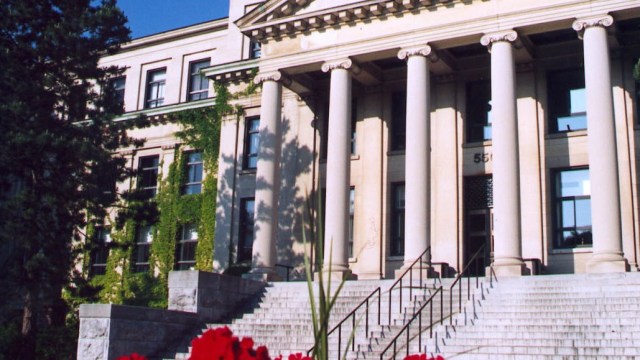
In Venezuela and parts of Latin America, authoritarianism and economic blackmail are suffocating universities. In North America, scholars have to deal with a different kind of pressure.
By Caracas Chronicles – Isaac Nahón-Serfaty
Jun 30, 2021
When you compare notes about the situation concerning academic freedom in Latin America and North America, the differences between these two realities shine through. In a forum organized by me through the Critical Éducation Critique (CéC) last April (which you can view here), I invited colleagues from Ottawa University to discuss the topic from a comparative point of view. Academic freedom is under siege all over the world, but for different reasons.
Two Latin American colleagues at the university, Catalina Arango (Colombia) and Salvador Herencia Carrasco (Peru), exposed the violations against academic freedom in the region. Venezuela has one of the most devastating balances: public universities are defunded, the teachers’ exodus, repression, imprisonment, and murder of students by police and military forces. Colombia has a complicated situation because of the repression of student protests, but also because of sexual harassment and gender violence against female teachers and students. In Brazil, Bolsonaro’s government has put pressure on public universities, threatening to cut funds on social sciences and humanities programs, because they question his policies. In Mexico, the disappearance and murder of a group of students shows the seriousness of the violence going on in that country, which also affects journalists and politicians.
François Charbonneau, professor of Political Science at Ottawa University, made a presentation about the so-called woke ideology, which sets the agenda for a movement spreading throughout the USA and Canada. The term comes from “awake” and it includes professors, students, and activists who have woken up and adopted “critical social justice” principles. Their actions vindicate “cancel culture”; they defend getting rid of any word or expression which might be considered offensive (no matter the context), and they go against everything that represents the male, heterosexual, white, western, and colonialist establishment, which according to them, is the birthplace of all types of discrimination and injustices taking place in the world.
What Does Freedom Mean?
The word freedom acquires different meanings depending on where you’re standing in the Western Hemisphere, especially when it comes to academic freedom. In Mexico or further south, it’s a matter of defending life (not killing students), not having female professors or students sexually harassed, keeping programs open even if they are critical of the government’s policies, or even having a decent salary for academics (in Venezuela professors earn between three and five dollars per month). In Canada, the case I’m most familiar with, defending freedom means avoiding the woke ideology to impose censoring and panic in universities.
An example in my own university showcases this absurd reality, in a country that has a rather well-developed democracy, a decentralized territorial organization, an independent justice system, and relatively good social indicators. Last October, a young professor was admonished because she used the N word in an Art History course (the course was via Zoom because of the pandemic). Professor Verushka Lieutenant-Duval wanted to shine light on how marginalized groups in society appropriate certain words which originally have a degrading meaning (she also used the word “queer” as an example) to criticize world order and give them a more combative tone (for example, rappers using the N word). A student filed a complaint against the teacher because her “sensibility had been hurt.”
Lieutenant-Duval was called upon by her faculty’s authorities, who decided to suspend the course for a few days, open a new section for those who felt uncomfortable continuing the semester with the professor, and began procedures for an investigation. The dean spoke out on social media, defending the rights of those who felt offended by the use of said word, and warning professors about the risks of using words which might seem racist or offensive (even in a pedagogical context).
The Lieutenant-Duval saga exploded on social media and Canadian media outlets. A group of 34 university professors (myself included) signed a public letter in defense of the professor, freedom of speech and academic freedom, and ratifying our conviction against racism and any form of discrimination. The group was accused of defending “white supremacist” structures, through an online petition promoted by four social science professors. Twitter blew up with false accusations of racism and appealing to forbid the use of certain words or expressions in class.
What happened at Ottawa University has also happened in other Canadian universities, as well as in the United States. It’s a trend spreading across North America. It looks to impose a “correct” way in the use of language, reading material, and teaching methods. It also meddles in high schools. In Toronto, a French teacher was sanctioned for proposing the reading and analysis of a poem by Jaques Prévert. A student denounced her in the media because the poem was “justifying” slavery, which is, for any able reader, absolutely false (more on this case here). The teacher received a write-up from the school board.
An Ideological Intimidation Atmosphere
In Venezuela, academic freedom is threatened because professors and students are leaving public universities, programs are fighting tooth and nail not to close down, an infrastructure which is literally falling apart, vandalism and theft on grounds and laboratories, and repression and violence by the government.
…
Read More: Caracas Chronicles – The many faces of censorship in academia
…

